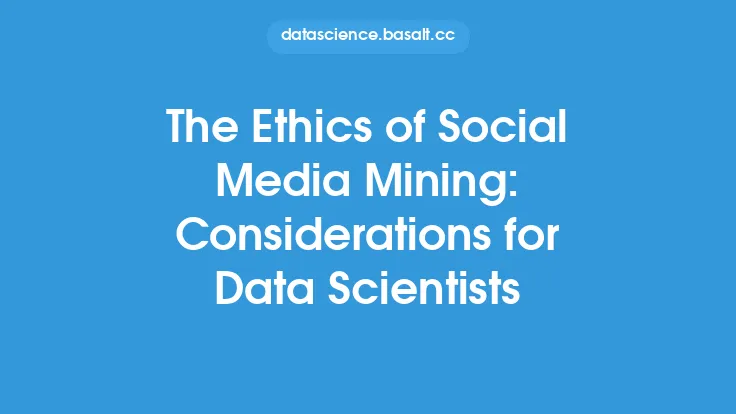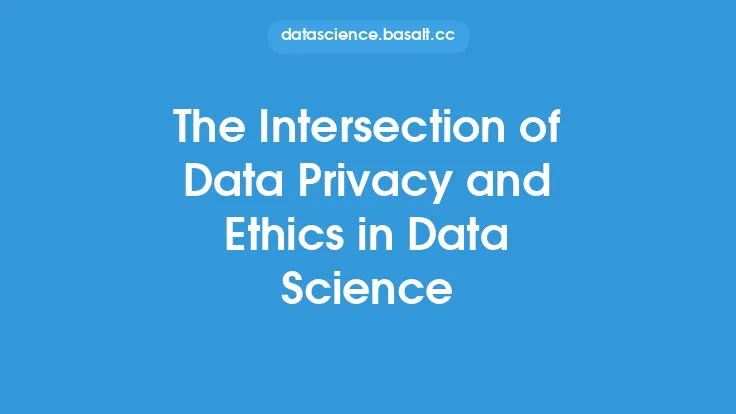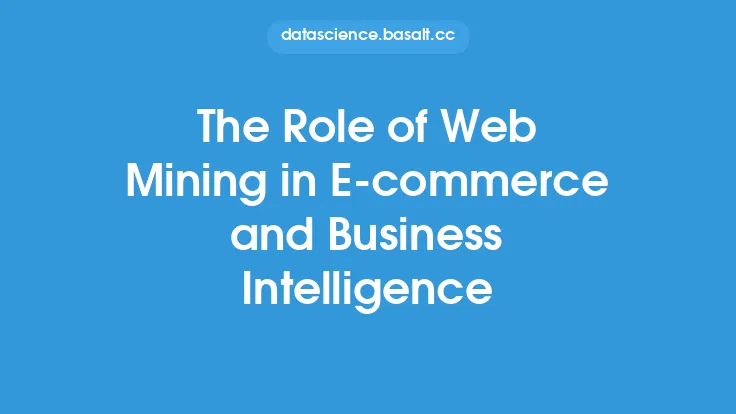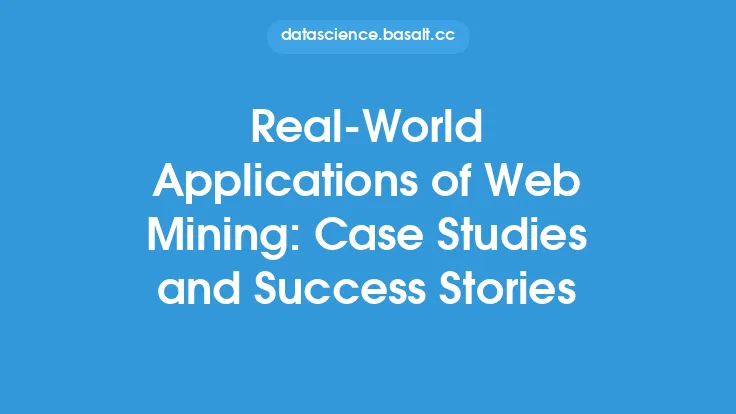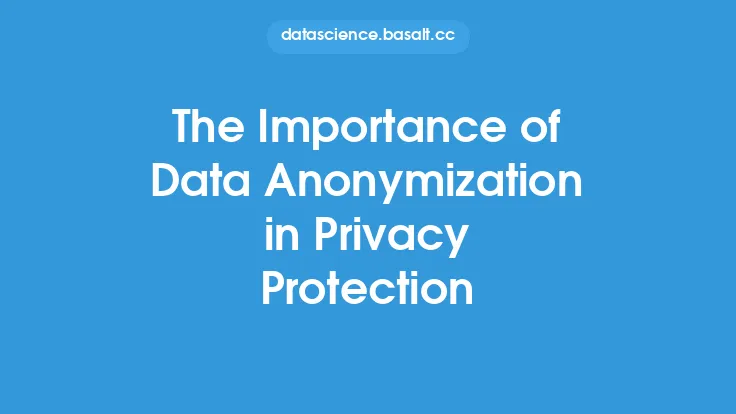The increasing reliance on the internet and online services has led to an explosion of data, making web mining a crucial aspect of data mining. Web mining involves the automatic discovery and extraction of useful information from the web, which can be used for various purposes such as marketing, research, and business intelligence. However, the collection and analysis of this data raise significant ethical concerns, particularly with regards to privacy and data protection.
Introduction to Ethics in Web Mining
Web mining raises several ethical concerns, including the collection of personal data without consent, the potential for data breaches, and the use of data for malicious purposes. The ethics of web mining are complex and multifaceted, and require careful consideration of the potential consequences of data collection and analysis. One of the primary concerns is the lack of transparency and accountability in web mining, which can make it difficult for individuals to understand how their data is being used and to hold companies accountable for any misuse.
Privacy Considerations
Privacy is a fundamental human right, and the collection and analysis of personal data without consent is a significant concern in web mining. The use of cookies, beacons, and other tracking technologies can allow companies to collect detailed information about an individual's online activities, including their browsing history, search queries, and social media interactions. This information can be used to create detailed profiles of individuals, which can be used for targeted advertising, marketing, and other purposes. However, the collection of this data without consent is a violation of an individual's right to privacy, and can have significant consequences, including identity theft, stalking, and harassment.
Data Protection Considerations
Data protection is another critical concern in web mining, as the collection and analysis of large amounts of data can create significant security risks. The use of insecure protocols, such as HTTP, can allow hackers to intercept and steal sensitive data, including personal identifiable information (PII) and financial information. Additionally, the storage of large amounts of data in centralized databases can create a single point of failure, which can be vulnerable to cyber attacks and data breaches. The use of encryption, secure protocols, and distributed databases can help to mitigate these risks, but the implementation of these measures is not always consistent, and can vary widely depending on the company and the specific use case.
Regulatory Frameworks
Regulatory frameworks, such as the General Data Protection Regulation (GDPR) in the European Union and the California Consumer Privacy Act (CCPA) in the United States, have been established to protect individual privacy and data protection rights. These frameworks provide guidelines for the collection, use, and storage of personal data, and require companies to obtain consent from individuals before collecting and analyzing their data. However, the implementation of these frameworks is not always consistent, and can vary widely depending on the company and the specific use case. Additionally, the lack of international cooperation and consistency in regulatory frameworks can create significant challenges for companies operating in multiple jurisdictions.
Technical Considerations
From a technical perspective, web mining involves the use of various tools and techniques, including web scraping, natural language processing, and machine learning. Web scraping involves the use of software programs to extract data from websites, which can be used for various purposes, including data mining and business intelligence. Natural language processing involves the use of algorithms to analyze and understand human language, which can be used to extract insights from unstructured data sources, such as social media and online forums. Machine learning involves the use of algorithms to analyze and understand patterns in data, which can be used to make predictions and recommendations.
Best Practices for Ethical Web Mining
To ensure that web mining is conducted in an ethical and responsible manner, several best practices can be followed. First, companies should obtain consent from individuals before collecting and analyzing their data, and should provide clear and transparent information about how their data will be used. Second, companies should implement robust security measures, including encryption and secure protocols, to protect sensitive data from unauthorized access. Third, companies should use data anonymization and pseudonymization techniques to protect individual privacy, and should avoid collecting and storing sensitive data that is not necessary for the specific use case. Finally, companies should establish clear policies and procedures for data governance, including data retention, data sharing, and data deletion.
Conclusion
In conclusion, the ethics of web mining are complex and multifaceted, and require careful consideration of the potential consequences of data collection and analysis. The collection and analysis of personal data without consent, the potential for data breaches, and the use of data for malicious purposes are all significant concerns that must be addressed. By following best practices, including obtaining consent, implementing robust security measures, using data anonymization and pseudonymization techniques, and establishing clear policies and procedures for data governance, companies can ensure that web mining is conducted in an ethical and responsible manner. Additionally, regulatory frameworks, such as the GDPR and CCPA, provide guidelines for the collection, use, and storage of personal data, and require companies to obtain consent from individuals before collecting and analyzing their data. By prioritizing ethics and responsible data practices, companies can build trust with their customers, protect individual privacy and data protection rights, and ensure that web mining is used for the betterment of society.
